
Emphasis on sustainability enables Halcyon Agri to thrive in a changing business environment
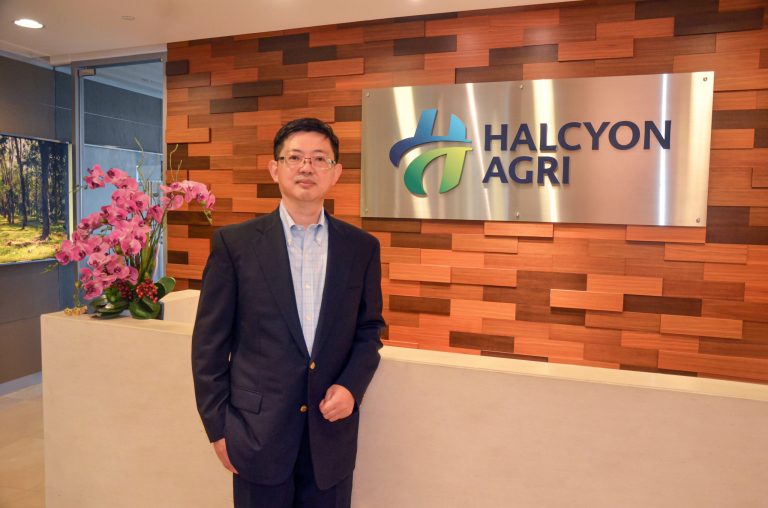
At Halcyon Agri, we place strong emphasis on corporate sustainability. Our unwavering commitment to ESG will strengthen our business ecosystem and will ensure that we continue to thrive in the ever-changing business landscape.
- David Li Xuetao (Halcyon Agri CEO)
Q1 One of the four major raw materials of modern industry, natural rubber is closely related to the basic of the national economy and people’s Q1 One of the four major raw materials of modern industry, natural rubber is closely related to the basic of the national economy and people’s livelihood. As countries around the world have proposed their carbon neutral goals, what impact will these goals have on the development of the natural rubber industry and Halcyon Agri? Will it bring some new opportunities?
The goal of achieving carbon neutrality by 2050 was committed by nearly 200 countries during the Paris agreement in France in 2016. The concerted effort aims to address climate change by limiting global warming to 1.5°C–a threshold based on findings from Intergovernmental Panel for Climate Change (IPCC).
The movement marks a shift from business-as-usual for companies, as they have to rethink their business models and incorporate carbon neutrality in their strategic planning. This could mean a shift towards renewable resources and strengthening collaboration across the supply chain to achieve greater efficiencies. Implementation will also require significant investments in human capital and technology. The increasing emphasis on carbon neutrality meant that it is no longer an area where corporates would shy away from, but instead need to tackle head-on.
Halcyon Agri welcomes this structural shift and we believe enhancing sustainability in business practice will elevate the industry standards and practices across the value chain. Sustainability is one of our key business tenets. We are a leader in the sustainability arena of the natural rubber industry, and some of our key achievements and milestones include:
- Halcyon Agri is a founding member of the Global Platform for Sustainable Natural Rubber (GPSNR) and are among the first in the industry to establish a sustainable natural rubber policy that is aligned with the GPSNR framework.
- Halcyon Agri launched HeveaConnect1, a digital market place that aims to promote price transparency for the production of sustainable natural rubber, which attracted investments from DBS, the “World’s Best Bank”, ITOCHU, one of the largest Japanese trading corporations, as well as Singapore Exchange, Asia’s leading and trusted securities and derivatives market infrastructure.
Awarded EcoVadis Gold2 status in 2020 and attained the rank of #1 Most Transparent Rubber Producing Company in SPOTT’s 2021 assessment3.
We envisage that our investment in green and carbon neutrality initiatives could entail more exposure to green financing opportunities. Green financing is useful instrument to support companies’ sustainability drive. In 2020, we became the first in the industry to secure a sustainability-linked loan from Deutsche Bank2. We aim to deepen our collaboration with the existing and new banking partners to foster our long-term sustainability initiatives.
Q2 According to the 2020 annual report issued by Halcyon Agri, your greenhouse gas emissions last year have been reduced by nearly 12% compared to 2017. In the past few years, how has Halcyon Agri moved to cut the emissions? What are the main measures and achievements?
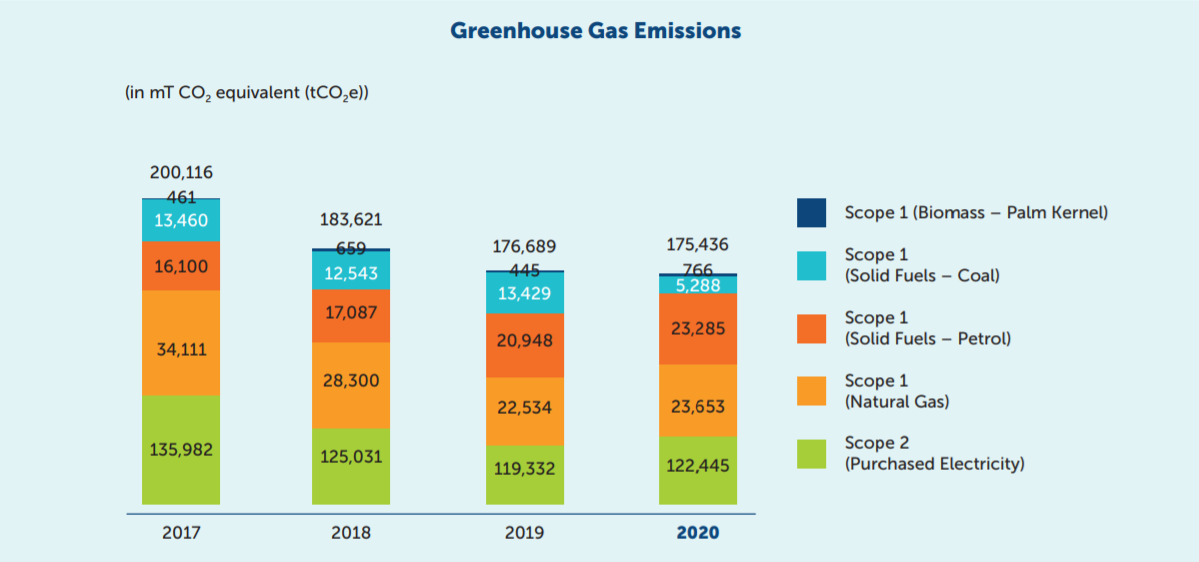
Halcyon Agri adopts a conscious approach to minimise its carbon footprint.
We strive to push ourselves further and we are encouraged by our performance in 2020. We attribute this performance to our deeply ingrained sustainability culture and to our pledge on sustainable practices since the early years.
We applied two main levers: Setting of stringent standards and performance monitoring.
Setting stringent ESG standards and goals. I would attribute this success to our relentless push to set best-in-class standards and goals across our processing factories.
In 2015, we launched the HeveaPro4 brand of natural rubber for our customers. The brand consists of over 1,000 performance criteria on quality, environment, health and safety, security and social responsibility standards. In 2017, we engaged TÜV SÜD5 to provide independent audit of our factories against the standards to instil greater transparency and confidence in our customers. In 2019, the ownership of the HeveaPro standards was transferred to HeveaConnect, in a push to promote HeveaPro as the industrial standard for sustainable natural rubber.
Apart from meeting environmental regulations, standards require the setting of operating procedures and annual performance targets and KPIs. This, I believe, will continue to drive our factories performance towards operational excellence.
To further support this approach, we have embarked on a goal for all our processing factories to be ISO14001 certified by end of 2025.
Implementing rigorous ESG data analysis and performance benchmarking. Besides setting stringent standards, we have invested in a group-wide ESG data collection system – Halcyon Data Centre. The system serves as a key reporting tool for our factories on their environmental quality, health, and safety performance. We deploy the system extensively as a benchmarking tool to identify areas of improvement, particularly in energy consumption.
Using the data and experience gathered over the years, we are making headway towards committing to the Science Based Targets initiative (SBTi) for net-zero carbon emission targets.
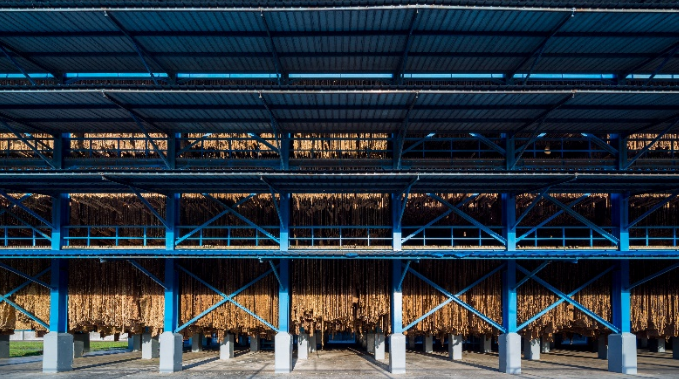
Our HeveaPro factories, which apply stringent standards to produce high quality rubber for our customers
Q3 From the perspective of the entire circle of natural rubber planting, processing, and operations, there is a view that its planting could destroy the natural ecology and its processing also consumes a lot of energy. How does Halcyon Agri cope with these difficulties? What are your principles and practices in achieving biodiversity and energy saving?
We adopt a responsible, holistic and sustainable agricultural approach. This means we are resolutely committed to zero deforestation in our operations, as well as initiatives that are aimed at sustaining the natural ecology in the surrounding areas.
We are committed to achieving profitability in a sustainable manner and we know that it is the right thing to do. More importantly, we see this as highly consistent with China’s New Development Philosophy – a key principle to their “carbon emission peak and carbon neutrality” vision.
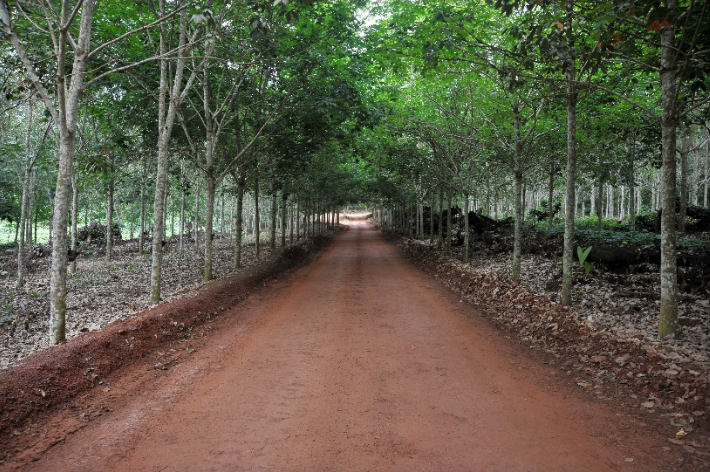
One of our natural rubber plantations in Africa, producing sustainable and fully traceable latex
As with HeveaPro, we have also set conservation and land management practices, covering over 100,000 ha of land concessions in Africa and Malaysia. These include application of integrated pest management, monitoring and suppression of fires and maintaining buffer zones in watercourses that serve as essential corridors for wildlife movement. Apart from this, we have established a 25,000 ha of community forest in our Cameroonian plantations, and have teams guarding our concessions against illegal activities such as wildlife poaching.
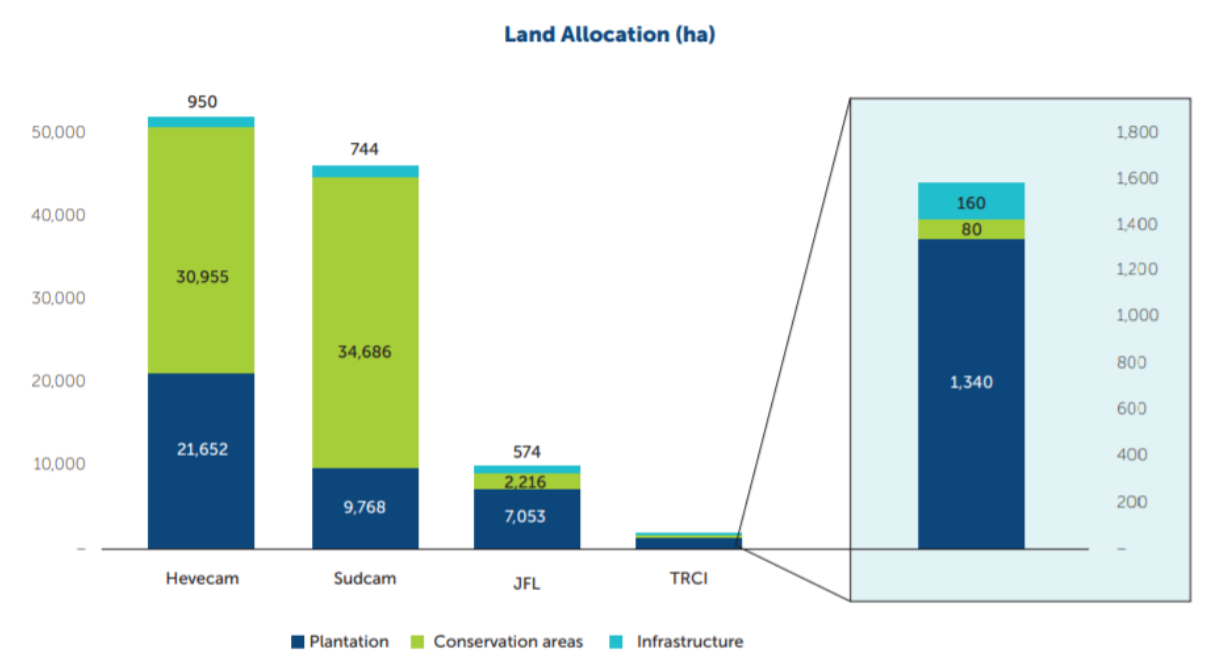
More than 60% of our concessions are set aside for conservation
Our sustainability initiatives even extend beyond our concessions. We have officially launched our Cameroon Outgrower Programme6 The programme aims to provide farming educate, financing and empowerment to smallholder farmers and assist them in creating multi-crop farms alongside rubber trees. We have safeguards in place to ensure that participating farmers adopt good agro-ecology practices and do not contribute to deforestation.
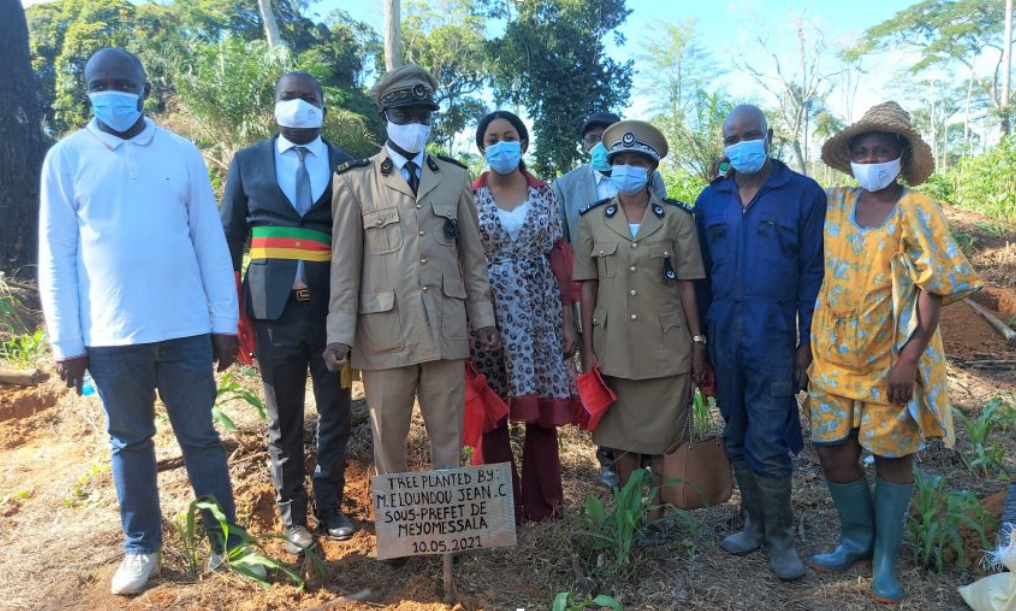
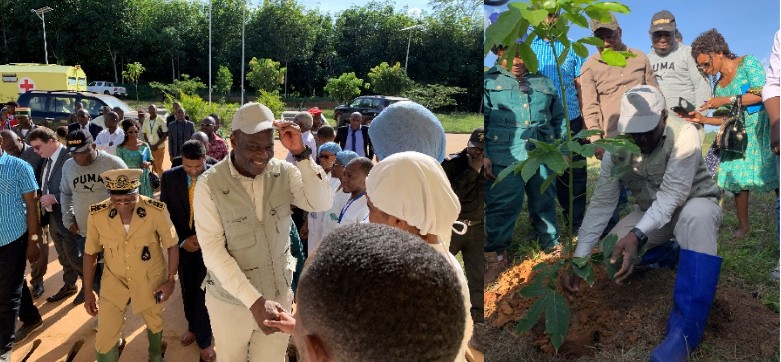
Cameroon Outgrower Programme
We continue to work on optimising the operating efficiency of our processing factories. As aforementioned, we apply HeveaPro standards and aggressively track our performance, and include these metrics as performance evaluation targets of the operating businesses, to help us continuously improve year on year.
We work closely with stakeholders to drive sustainability practices across the industry. We partner with a national civil society organisation in Cameroon, which represents over 50 local NGOs at grassroots level, to spearhead conservation efforts and socio-economic development. At group level, we continue to support GPSNR agenda.
Q4 As a leader in the natural rubber industry, how does Halcyon Agri promote carbon emissions reduction globally? Are there any typical cases?
We adopt a multi-pronged approach in our carbon reduction journey. This means we set measureable milestones at various junctures to monitor our progress. We believe we can learn from other early adopters, while continue to assess and study our carbon footprint. Some of our notable initiatives:
- Our partnership with Rainforest Alliance7 to assess the greenhouse gas balance of our Cameroonian plantations.
- Solar panel installations in selected factories in Cameroon and Malaysia, as part of our pilot programme to tap on clean energy for our operations.
Moving forward, we are setting an ambitious timeline to commit to SBTi targets by 2023 and to establish our own sustainability targets for 2030 and beyond.
Q5 How will Halcyon Agri grasp the opportunities created by China’s “carbon peak and carbon neutrality”?
Leading the green technological push. We have strategically positioned ourselves to lead and to capture the booming green transportation market. Interest in electric vehicles has fuelled a secular shift towards sustainably sourced and responsibly produced products. This is where Halcyon Agri differentiates ourselves from other producers. We are already seeing this trend happening, ranging from Pirelli’s announcement of FSC-certified tyres for BMW to Michelin and Porsche’s smallholder capacity building programme in Indonesia.
Bolstering the carbon sequestration and carbon finance sectors. We believe that we can play a critical role in the development of carbon sequestration initiatives in the natural rubber industry. Ultimately, we aim to achieve carbon neutrality through our mitigation efforts and sustainability initiatives. There are plans to offset any net emission through participatory in the carbon-trading markets.
Promoting international cooperation. Leveraging Chinese government’s South-South cooperation approach, we can explore joint/cross-border R&D and agrotechnology transfer opportunities to uplift agricultural practices and modernise the natural rubber industry.
Q6 What are the targets of Halcyon Agri in terms of enhancing carbon emission reduction and green development? What are the approaches of fulfilling these targets as well as ensuring business growth?
I place emphasis on strengthening three key areas: our ESG governance, carbon mitigation, and climate resilience.
We strive to further strengthen our management of ESG factors, including aligning our business practices to the UN Sustainable Development Goals. Our ambition for Halcyon Agri is:
To build a prosperous and resilient ecosystem.
- Recognising its versatility, natural rubber enables countless industrial and domestic applications from tyres to gloves.
- As irreplaceable as our planet, we will exercise every effort to achieve responsibly-source natural rubber.
- We will do this by advancing equitable livelihoods, realising transparent and deforestation-free supply chains, and respecting human rights and rule of law wherever we operate.
The top priority for the Group in sustainability front is continue to stay focus on achieving:
- World-class quality, health & safety, security, environment and social responsibility management systems
- Net-zero emission and climate-resilient operations
- Net-positive water impact across our operations
- Traceable & deforestation-free sourcing
- Equitable livelihoods for all upstream stakeholders
We shall progressively set roadmaps for each priority in coming years, and continuously improve our management systems. With regard to net-zero carbon emission and climate resilience, we have set our sights on SBTi commitment by 2023. Alongside this, we shall build up our climate resilience strategy in 2022 following the Task Force on Climate-Related Financial Disclosures (TCFD) recommendations and guidance from Singapore Exchange (SGX)’s sustainability reporting protocols.
1 https://heveaconnect.com/
2 https://www.halcyonagri.com/en/press-release/halcyon-agri-provides-corporate-updates/
3 https://www.halcyonagri.com/en/press-release/halcyon-ranks-top-amongst-rubber-producers-in-spott-assessment/
4 https://www.halcyonagri.com/wp-content/uploads/2019/06/HEVEAPRO_V5-Digital.pdf
5 https://www.tuvsud.com/en-sg/about-us
6 https://www.corrie-maccoll.com/cameroon-outgrower-programme-has-launched/
7 https://www.corrie-maccoll.com/wp-content/uploads/2020/11/Assessing-C-neutrality-opportunities_final.pdf


